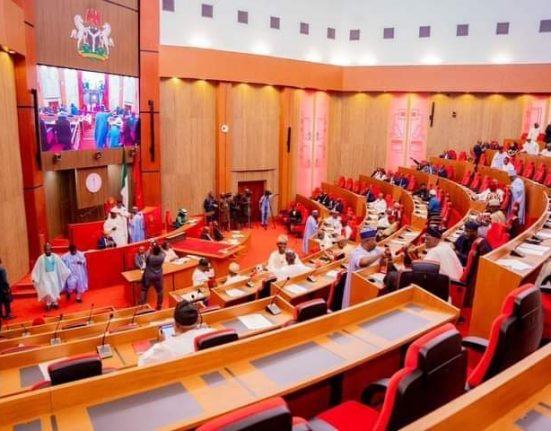BTS: Sbarter is described as a “skill-based gaming protocol” rather than a gambling platform. For readers who are new to the concept, how would you explain what Sbarter does, and what makes it different from traditional gaming or betting platforms?
Dominique Cor: Sbarter is not a gambling platform. It’s a skill-based gaming protocol that lets players compete in the games they already love for small, predefined stakes where skill, not chance, decides the outcome.
What makes Sbarter truly different is that it’s the only protocol that also pays game publishers. Each verified match generates shared revenue, giving value back to the ecosystem rather than taking it out. And compared to traditional gaming, it doesn’t replace how people play, it simply adds a new, social layer of friendly competition that makes the experience more meaningful and fun.
Think of it like real life: when you play darts or pool with friends, everyone might put a few euros in the pot and the winner buys the next round. It’s friendly, social and based purely on performance. Sbarter brings that same spirit into gaming, in a secure, transparent and regulator-ready way.
BTS: What inspired the creation of Sbarter, and what problem is it trying to solve globally and specifically in emerging markets like Nigeria?
Dominique Cor : Sbarter was born from something very simple: players love to compete, but they want to do it safely and fairly. For years, that kind of friendly, skill-based competition has existed offline, but there hasn’t been a secure or compliant way to bring it into gaming.
At the same time, the industry’s main revenue models, ads, in-app purchases, subscriptions, are showing their limits. Sbarter introduces a new way forward: it helps publishers generate value from real player engagement, while giving gamers a fun, transparent way to compete based on skill, not spending.
In markets like Nigeria, that’s especially relevant. There’s huge energy around gaming, but also a need for trusted, responsible systems. Sbarter bridges that gap by creating a safe, fair environment where competition fuels connection, not risk.
BTS: Nigeria has one of Africa’s largest gaming and esports communities, as well as a fast-growing fintech ecosystem. Why is Sbarter particularly interested in the Nigerian market?
Dominique Cor : Nigeria is one of the most dynamic gaming markets in Africa: connected, and incredibly engaged. It also has a fast-growing fintech ecosystem, which makes it an ideal environment for responsible digital innovation like Sbarter.
What makes Nigeria particularly interesting is its community-driven gaming culture. Players already compete, organize local tournaments, and build strong online communities, Sbarter simply gives them a safe, transparent, and compliant way to do what they already love.
At the same time, we see a real opportunity to support local publishers and studios, helping them unlock new, legal revenue streams from skill-based competition. Nigeria combines energy, creativity, and ambition, exactly the kind of ecosystem where Sbarter can grow responsibly and add real value.
BTS: How does Sbarter plan to navigate Nigeria’s complex regulatory environment, especially given the close scrutiny around online gaming, betting, and crypto-related activities?
Dominique Cor : We see regulation as a foundation for trust, not a barrier to growth. Sbarter was built to operate within clear legal boundaries, with compliance built in from day one, including bank-grade KYC, age verification and geo-fencing.
In Nigeria, where frameworks around gaming and digital assets are still evolving, we take a collaborative approach. Our legal team works closely with regulators to show that Sbarter operates strictly within the skill-based category, ensuring our model aligns with national standards.
Moreover, we don’t operate in the gray area between gaming and gambling. Every Sbarter contest is skill-based, there’s no randomness, no house, and no speculative trading. That distinction is key to how we engage with regulators.
In practice, Sbarter will only operate in jurisdictions where skill-based competition is recognized. Our goal is to help define a clear, compliant standard for fair digital competition that supports local innovation over time.
BTS: Many Nigerians are concerned about the potential for addiction or misuse in gaming. How does Sbarter ensure responsible participation and protect users from the negative aspects commonly associated with betting?
Dominique Cor : That’s a very fair concern, and it’s something we take seriously. Sbarter was designed to encourage social competition, never high-risk behavior. The experience is structured around small, friendly challenges where outcomes depend purely on skill. There’s no element of chance or gambling, so the focus stays on fun and performance, not profit or pressure.
We also work closely with publishers to set clear participation limits and integrate safeguards like age and identity verification. What Sbarter adds is a safe, transparent layer of friendly competition — the digital version of small wagers between friends, but within a legal, skill-based framework and always capped. It’s about bringing excitement, recognition, and social connection to gaming, without crossing into risk or speculation.
BTS : You’ve positioned Sbarter as a blockchain-powered system for skill-based wagers. Given the mixed public perception of crypto in Nigeria, how do you plan to build trust and transparency among players, regulators, and the media?
Dominique Cor : We know that “blockchain” can sometimes raise concerns, so it’s important to be clear about what Sbarter is and what it is not. Sbarter is not a crypto trading or investment project. It’s a skill-based gaming protocol that uses blockchain purely to ensure transparency, security and automation.
The technology runs entirely in the background. Players simply log in with an email, use an in-app wallet, and play their favorite games as usual. Blockchain is there to handle the complex parts: verifying results, processing payouts and guaranteeing that everything is transparent and tamper-proof.
To build trust, we focus on clarity and compliance. We engage openly with regulators and the media to show how Sbarter’s model is fair, skill-based and fully legal. For players, that transparency is what matters most and they need to know that every contest is verified, every payout is secure and nothing can be manipulated behind the scenes.
BTS : Could you walk us through how winnings are managed or paid out on Sbarter? For instance, how does it ensure fairness, speed, and data security in a market where digital scams are a major concern?
Dominique Cor : When players set up a challenge on Sbarter, the protocol first makes sure everything is valid: both players are verified, the match format is clear and the stake is securely locked on the blockchain. Once the game is played, the publisher acts as an oracle, confirming the result of the game. That verified outcome automatically triggers a payout through audited smart contracts, with no middleman and no delay.
All transactions are recorded immutably on-chain, meaning results and rewards can’t be altered, hidden or disputed. Players always keep control of their funds through non-custodial wallets, and every step, from challenge to payout, is transparent and verifiable.
It’s a process that combines publisher validation with blockchain automation to ensure every match on Sbarter is fair and fraud-proof.
BTS : Are there plans to partner with local game developers, esports communities, or fintech companies to make Sbarter locally relevant and accessible?
Dominique Cor : Absolutely. Local collaboration is central to how we plan to grow in markets like Nigeria. Sbarter was designed as an open protocol, so any developer can integrate it easily through a lightweight API. There is no complex setup, no disruption to their game. Developers can use Sbarter to add skill-based competition to their games very easily..
Communities and creators also play a major role in that vision. With Sbarter, they can host their own challenges, tournaments and community events and turn passive audiences into active participants. It’s a way for creators and esports communities to strengthen engagement and for players to connect through shared experiences that feel social and authentic.
Ultimately, our goal is to give developers, creators and players the tools to build sustainable communities.
BTS : Many Nigerian startups and developers struggle to monetize their games. Could Sbarter offer them new income streams, and if so, how would that work in practical terms?
Dominique Cor : Yes, absolutely. That’s one of the most exciting opportunities Sbarter brings. It introduces a new monetization layer for developers and publishers that creates value directly from verified player engagement, not from ads, in-app purchases, or sponsorships.
In practical terms, every time a contest takes place on Sbarter, the publisher validates the result and earns a small fee. There’s no integration cost, no new content to build, and no disruption to the existing game economy. It’s a complementary model that strengthens what already works while rewarding fair, skill-based play.
What makes Sbarter truly unique is that it’s the only protocol that actually rewards publishers, giving value back to the ecosystem instead of extracting it. It rebalances the relationship between players and creators, ensuring that everyone benefits from fair, skill-based competition.
For developers in Nigeria, that means a simple, scalable way to monetize responsibly. Even small studios can integrate Sbarter, activate their player communities, and generate steady revenue from real competition — turning engagement itself into a sustainable business opportunity.
BTS : There’s often a fine line between “skill-based gaming” and gambling in public discourse. What safeguards or criteria does Sbarter use to ensure it remains firmly on the skill side — both legally and ethically?
Dominique Cor : That distinction is absolutely essential. Every contest on Sbarter follows three clear principles: it’s peer to peer, it involves small, predefined stakes, and outcomes depend entirely on skill. By design, there is no element of chance or gambling — Sbarter operates strictly within the skill-based category.
Publishers remain in full control of how players can engage. They define the game modes, formats, and limits, ensuring every contest stays fair, transparent, and responsible. Ethically, the goal is just as clear: Sbarter is about friendly competition and recognition, not risk or speculation. It’s built to make gaming more exciting and meaningful, while staying safe for everyone involved.
BTS : How is Sbarter working with regulators or policymakers to educate them on the distinction between skill-based gaming and chance-based gambling, especially in countries like Nigeria where the laws are still evolving?
Dominique Cor : We see collaboration with regulators as essential to building long-term trust. From the start, Sbarter has taken a compliance-first approach and has engaged legal partners to help policymakers understand how skill-based gaming differs fundamentally from chance-based gambling.
Our goal isn’t to work around regulation but to contribute to it. By helping define a clear, compliant standard for skill-based competition, we hope to support local authorities in shaping policies that encourage innovation while protecting players and ensuring responsible participation.
BTS : Finally, what’s Sbarter’s long-term vision for Africa? Do you see Nigeria as a potential hub for your operations on the continent, and what should local gamers, developers, and investors expect in the next 12–18 months?
Dominique Cor : Absolutely, we see Africa, and Nigeria in particular, as a key growth region for Sbarter. The combination of a young, tech-savvy population, strong gaming culture, and growing fintech infrastructure makes it one of the most exciting markets in the world for skill-based digital competition.
In the next 12 to 18 months, our focus will be on building partnerships with local publishers, studios, and communities, ensuring that the Sbarter protocol is introduced responsibly and in alignment with local regulations. We also plan to expand our presence on the ground, creating opportunities for collaboration, education, and innovation within the ecosystem.
Long-term, our vision is for Nigeria to become a regional hub for compliant, skill-based gaming and digital competition, a place where local talent, creativity, and entrepreneurship help shape the future of fair play in the digital economy.








